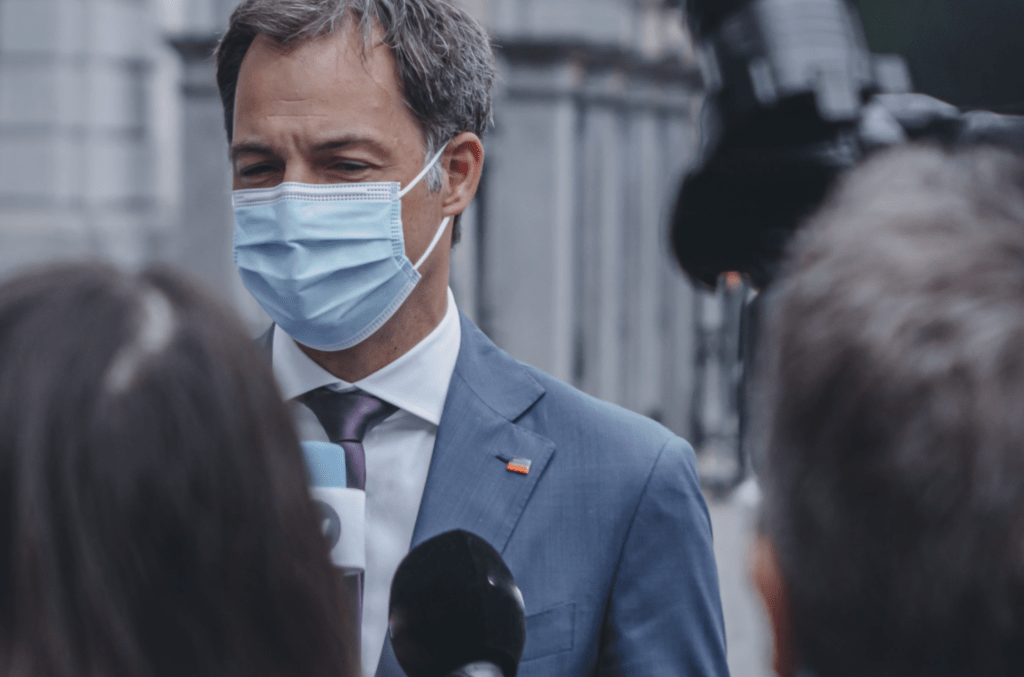Belgium’s Consultative Committee meeting last week resulted in a closure of the country’s cultural centre, only for the Council of State to reverse the coronavirus measure, calling it “disportionate” and not evidence-based.
Critics have pounced on the debacle, with one political scientist telling VRT that it amounted to “an absolute loss of face,” as politicians tripped over one another in sharing their doubts about the decision almost immediately after it was made.
“There is a lack of leadership and vision,” said analyst Carl Devos (Ghent University). “There is an urgent need for reflection, or I fear that we are heading for elections in 2024 where the anger of today will show itself.”
Ivan De Vadder, another political analyst, described it as “political cacophony.”
Related News
- Kinepolis to reopen doors on 1 January in anticipation of new rules
- Consultative Committee to meet today, announcing reopening of cultural sector
- Council sides with cultural sector: Covid measures are ‘disproportionate’
The Consultative Committee is meeting again on Wednesday, where they’re expected to formally reverse the Covid-19 measures that went into force on 26 December in accordance with the Council’s ruling that they went too far, unfairly targeted only the cultural sector, and weren’t backed by substantial proof that attending cultural events posed a danger to public health.
From bad to worse
The announcement of those Covid measures prompted immediate backlash from the cultural sector, which protested on Sunday. Many movie theaters in Brussels stayed open in defiance of the order, which went against the expert advice of the GEMS group, calling it senseless and harmful to the already beleaguered sector.
“After the previous Consultation Committee, I told 'De Morgen' that it goes from bad to worse,” Devos said, referring to an interview he gave to the Dutch-language newspaper.
“Now, it goes from worse to embarrassing. This is an absolute loss of face. The Council of State's decision is in itself not surprising, because the measure was disproportionate, but on the other hand it is, because it is exceptional that the Council of State blows the whistle on politics like this.”
The intervention of the Council of State has raised new questions, he says.
“Did exceptional circumstances play a role, such as politicians speaking out against their own decision, or experts who did not think this was scientifically based? Or is this the beginning of an evolution, where the Council of State looks at measures much more critically than before? That would be an important new political fact.”
He noted that in the past, “the Council of State has always been very lenient in supporting the measures. That's different now.”
Public backlash against both the measures and the politicians
Devos expects the blundering of politicians involved in setting the later-revoked measures to have an effect on future elections and overall public confidence.
“It’s not only the Council of State that picks up on this but also the population that has to respect the measures,” Devos said. “They look at the policy and see how politicians themselves undermine that. This is detrimental for the credibility of the policy and for the politicians.”
He pointed out the absurdity in politicians who introduced the measures just days ago now supporting their appeal.
“It is almost impossible to explain that, for example, Minister Petra De Sutter reacts with satisfaction to the fact that the Council of State suspends a decision of the Consultation Committee – in other words of her own government,” he said.
“How can you as a politician be satisfied with that? That is inexplicable. I am not saying this to specifically target her, as she is not alone. PS chairman Paul Magnette, for example, said earlier that they were collectively mistaken. That is particularly troublesome.”
A lack of leadership
“If you assume that in a crisis situation communication should be clear and unambiguous, we have got the opposite: a political cacophony,” De Vadder agreed. “That has to stop. You make a decision and stand behind it. And if it's not good, you say you made a mistake.”
The criticism from analysts like Devos and De Vadder, along with the general public, isn’t just to the country’s coronavirus policy in general, but also to the functioning of the political system itself.
Devos said the debacle with the latest measures demonstrates a lack of leadership.
“Both federal and regional government leaders are said to have too little control over the situation. We do not see them, we do not hear them, there is too little leadership,” he said.
“We simply lack vision and leadership on how to tackle this. And that's what's happening now.”

